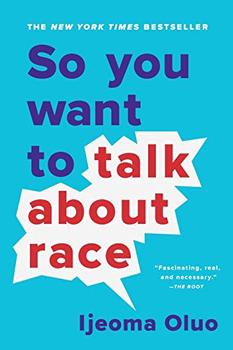Summary | Excerpt | Reading Guide | Reviews | Beyond the Book | Readalikes | Genres & Themes | Author Bio

I wanted to know why it was considered a bad thing that I was "opinionated," I wanted to know what exactly it was about my hair that was "unprofessional," I wanted to know what exactly it was about that joke that people found "funny." And once I started talking, I couldn't stop.
I also started writing. I shifted my food blog into a "me" blog, and started saying all the things that everybody around me had always said were "too negative," "too abrasive," and "too confrontational." I started writing down my frustrations and my heartbreak. I started writing about my fears for my community and my family. I had started to see myself, and once you start to see yourself, you cannot pretend anymore.
It did not go over well. My white friends (having grown up in Seattle, the majority of my friends were white), some of whom I'd known since high school, were not happy with the real me. This was not the deal they had struck. Yes, they would rage over global warming and yell about Republican shenanigans, but they would not say a word about the racial oppression and brutality facing people of color in this country. "It is not my place," they'd explain when in frustration I'd beg for some comment, "I don't really feel comfortable." And as I looked around my town and saw that my neighbors were not really my neighbors, as I saw that my friends no longer considered me "fun," I began to yell even louder. Somebody had to hear me. Somebody had to care. I could not be alone.
Like dialysis, the old went out and in came the new. Suddenly, people I had never met were reaching out locally and from all across the country in person and online, just to let me know that they had read my blog post and in reading it, they felt heard. Then online publishers started reaching out to me, asking if they could republish my work. And locally, isolated and invisible people of color started reaching out, showing me that I did have neighbors after all.
I was talking and writing at first for my very survival, not for anybody else's benefit. Thanks to the power and freedom of the Internet, many other people of color have been able to speak their truths as well. We've been able to reach out across cities, states, even countries, to share and reaffirm that yes, what we are experiencing is true. But the Internet has a very wide audience, and even though we were writing for ourselves, the power of the hurt, anger, fear, pride, and love of countless people of color could not go unnoticed by white people—especially those who were genuinely committed to fighting injustice. While some had chosen to turn away, upset that this unpleasantness had invaded their space of cat videos and baby pictures, others drew closer—realizing that they had been missing something very important all along.
These last few years, the rise of voices of color, coupled with the widespread dissemination of video proof of brutality and injustice against people of color, has brought the urgency of racism in America to the forefront of all our consciousness. Race is not something people can choose to ignore anymore. Some of us have been speaking all along, and have not been heard. Others are trying out their voices for the first time.
These are very scary times for a lot of people who are just now realizing that America is not, and has never been, the melting-pot utopia that their parents and teachers told them it was. These are very scary times for those who are just now realizing how justifiably hurt, angry, and terrified so many people of color have been all along. These are very stressful times for people of color who have been fighting and yelling and trying to protect themselves from a world that doesn't care, to suddenly be asked by those who've ignored them for so long, "What has been happening your entire life? Can you educate me?" Now that we're all in the room, how do we start this discussion?
This is not just a gap in experience and viewpoint. The Grand Canyon is a gap. This is a chasm you could drop entire solar systems into.
Excerpted from So You Want to Talk About Race by Ijeoma Oluo. Copyright © 2019 by Ijeoma Oluo. Excerpted by permission of Seal Press. All rights reserved. No part of this excerpt may be reproduced or reprinted without permission in writing from the publisher.
In war there are no unwounded soldiers
Click Here to find out who said this, as well as discovering other famous literary quotes!
Your guide toexceptional books
BookBrowse seeks out and recommends the best in contemporary fiction and nonfiction—books that not only engage and entertain but also deepen our understanding of ourselves and the world around us.